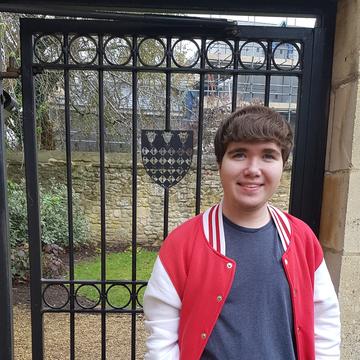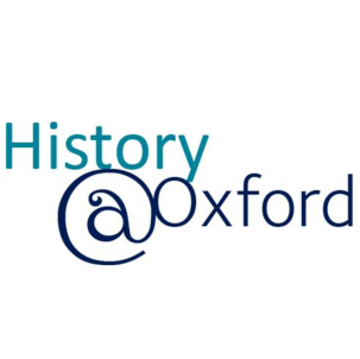Undergraduate Examinations - 'take home' paper review
The time is yours, and you are free to use it how you like. This is the ultimate opportunity to work as you do best

Daniel is a second year BA History and Politics student at Magdalen College. He is a disabled student and the first in his immediate family to go to university. Daniel is Magdalen’s JCR President and an Elected Member of Standing Committee at the Oxford Union. He is also a Trustee of Potential Plus UK, a Founding Ambassador and Expert Panel Member for Zero Gravity, a Sutton Trust Alumni Leadership Board Member and a History Faculty Ambassador. Before coming to university, Daniel studied at a non-selective state school, and was a participant on the UNIQ, Sutton Trust, and Social Mobility Foundation APP Reach programmes, as well as being part of the inaugural Opportunity Oxford cohort. Daniel is passionate about outreach and social mobility and ensuring all students have the best opportunity to succeed.
Second year History and Joint Honours candidates who take the History of the British Isles paper will sit the ‘take home’ examination at the end of trinity term. Having just sat this paper myself, this article is designed to outline what I have learnt from the process alongside trying to demystify the assessment.
We were given nine days to complete the three essays for the take home paper, and it is worth the same in percentage terms as every other component of the Final Honours School exams. Therefore slightly prioritising this paper during the second year is sensible, given the fact you will not need the content again and you will have longer to prepare for exams at the end of third year.
My next tip is to make sure to conserve your energy during the summer term (trinity) as best as possible – with it being sat at the end of term you want to make sure you can still deliver your best work. I found it frustrating seeing my friends without exams being able to fully enjoy the weather or having time off, but ultimately, I will have less exams at the end of third year (in my case I will sit four, compared to some of my friends sitting seven exams). See the degree as a marathon not a sprint, and enjoy the summer term but make sure you still have some energy left in the tank.
My next tip is to use all of the time available. While you can submit the assessment after a few days it doesn’t seem sensible to do so when it contributes to your final degree classification. The assessment is designed to give you time to undertake additional reading during the exam, so use it. The questions may not approach the topic exactly as they did in the tutorial, they may cross topic boundaries, or they may choose to focus on a slightly more specific detail. Using the Faculty reading list alongside wider research online and any guidance you received from your tutor when you did the topic means you will be best able to respond to the questions. Make sure you use the time available to explore the subjects more in-depth.
In addition, it is worth spending some time planning your schedule before the assessment starts. You don’t want to be writing essays until the last second as that will make the experience far more stressful, and may mean you aren’t able to deliver your best work. In my case, I planned to spend two and a half days per essay (two days reading, half a day planning and writing). This left me with some time to take off, some time as buffer in case I overran, and some time to proofread.
I would encourage still doing things you enjoy during the assessment. The absolute focus does need to be on delivering your best academic work, however you are unlikely to be able to achieve this if you are stuck in your room all day. Take regular screen breaks, go for walks, grab an ice cream with a friend, or spend some time on your favourite hobby. In my case, I DJ and performed at two gigs as I knew it would keep me motivated.
The time is yours, and you are free to use it how you like. This is the ultimate opportunity to work as you do best, may that be doing more work late at night or getting up early in the mornings. Whatever approach you choose the target should be to achieve your best work.
My final tip for during the assessment is to be realistic. You cannot read the entire Faculty reading list in two days, and there is no point making one essay perfect while another suffers in quality. Given the assessment seems to be designed to encourage you to produce three essays very similar in length to a tutorial essay, I tried to aim to read as much in the time as I would for a tutorial. That way I should have enough specialised material to respond to the question, and would put me in a good position given I had already done some reading for my tutor. It kept me focused through the assessment period by having reading targets, and ultimately I felt it made sure I didn’t get too tired too quickly.
I now want to provide some advice for the wider academic year. Firstly, to save yourself time in the assessment make notes which contain page numbers for everything you write down. As the assessment requires page number references for everything that needs referencing, it saves you lots of time by already having notes in the right format. This means you can focus on finding new material during the assessment reading, and you can use the time you have in the run-up to the assessment to look over your old notes.
When revising, it is not the same as a closed-book assessment. Aim to get everything ready so you can maximise your time. As you won’t know what questions will come up, it can be helpful to be aware of all the topics that you studied for your tutorials, and noting 4-5 preferences. Spending a little time on extra reading will put you in an even better position.
My final piece of advice is; know the assessment rubric. The use of primary sources is encouraged where possible. This can be through secondary sources, or it can be by studying primary sources directly. Therefore try to prepare resource banks before the exam if you can. The assessment in a way is partly one of preparation, as well as of your ability to write and put forward convincing arguments in the time given.
The take home paper can be a little different to other assessments you have completed, however getting to grips with it early means you can give it your best. It is worth not putting too much pressure on yourself to succeed, but trying to prepare for success as best as possible so you can make the most of your time in the assessment itself.




